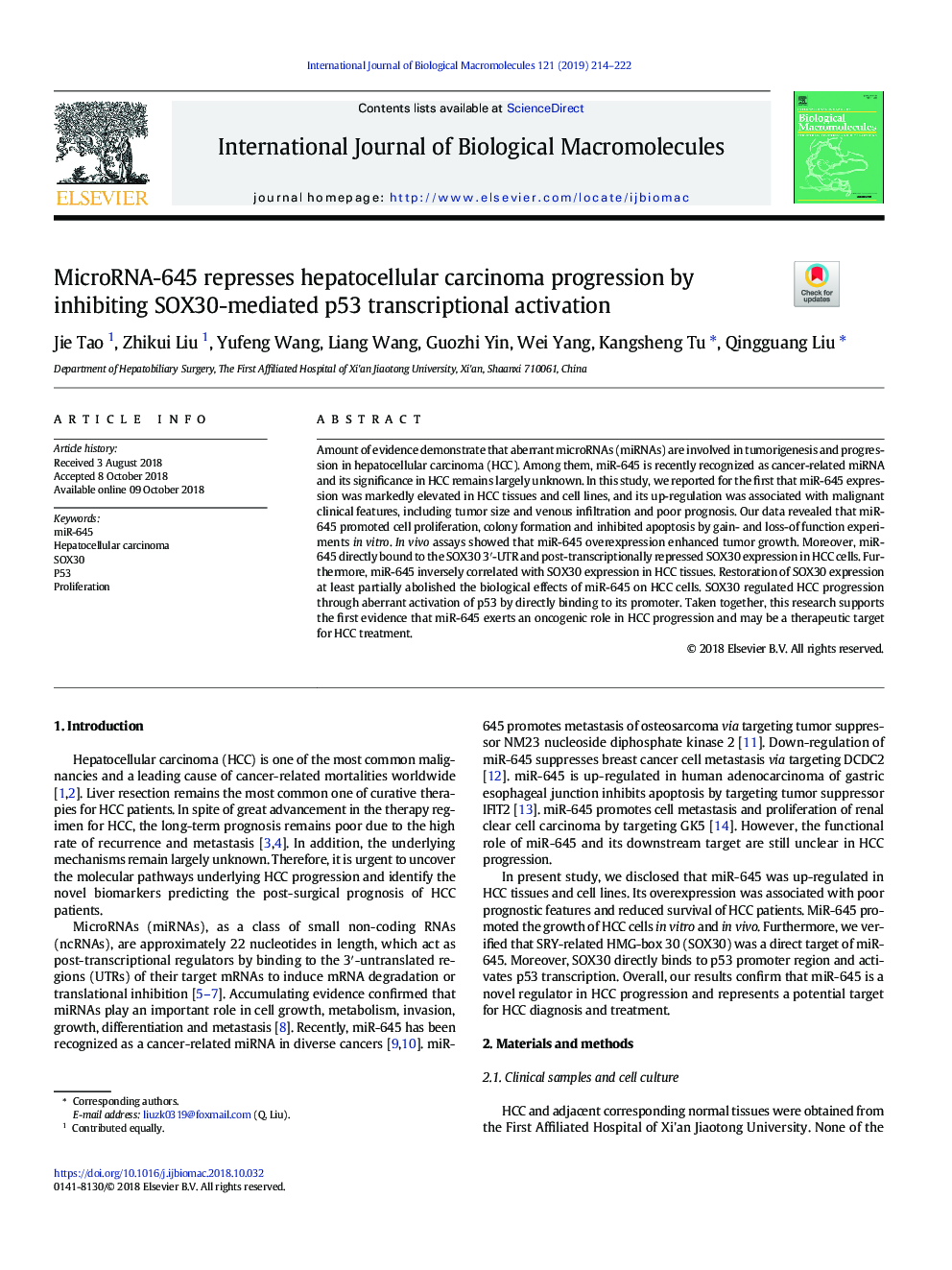| Article ID | Journal | Published Year | Pages | File Type |
|---|---|---|---|---|
| 11010964 | International Journal of Biological Macromolecules | 2019 | 9 Pages |
Abstract
Amount of evidence demonstrate that aberrant microRNAs (miRNAs) are involved in tumorigenesis and progression in hepatocellular carcinoma (HCC). Among them, miR-645 is recently recognized as cancer-related miRNA and its significance in HCC remains largely unknown. In this study, we reported for the first that miR-645 expression was markedly elevated in HCC tissues and cell lines, and its up-regulation was associated with malignant clinical features, including tumor size and venous infiltration and poor prognosis. Our data revealed that miR-645 promoted cell proliferation, colony formation and inhibited apoptosis by gain- and loss-of function experiments in vitro. In vivo assays showed that miR-645 overexpression enhanced tumor growth. Moreover, miR-645 directly bound to the SOX30 3â²-UTR and post-transcriptionally repressed SOX30 expression in HCC cells. Furthermore, miR-645 inversely correlated with SOX30 expression in HCC tissues. Restoration of SOX30 expression at least partially abolished the biological effects of miR-645 on HCC cells. SOX30 regulated HCC progression through aberrant activation of p53 by directly binding to its promoter. Taken together, this research supports the first evidence that miR-645 exerts an oncogenic role in HCC progression and may be a therapeutic target for HCC treatment.
Related Topics
Life Sciences
Biochemistry, Genetics and Molecular Biology
Biochemistry
Authors
Jie Tao, Zhikui Liu, Yufeng Wang, Liang Wang, Guozhi Yin, Wei Yang, Kangsheng Tu, Qingguang Liu,
